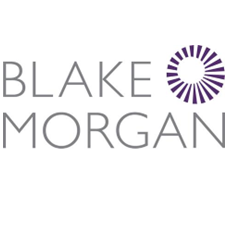It’s February 2019 and the market is back in full swing now that everyone has returned after the holiday season. As an experienced recruiter within the interim market at Chadwick Nott one of the most common questions or inquiries I receive at this time of year is “what does the market look like at the moment and what’s coming up?” It’s easy to give a snapshot of the roles you are working currently, and what you’re hearing from candidates and clients in regards to movements in the market, but it’s not always as easy to predict what might happen in the proceeding weeks, months or even year. That said, I thought it would be useful to explore the potential events and issues that might shape the next 12 months in the interim legal market.
Interim Legal Market in 2019: What to Expect and Key Influences

What Is the Interim Market and How Does It Differ to Permanent Recruitment?
In order to ‘forecast,’ it’s important to first take a step back and understand the difference between interim recruitment and permanent recruitment. Recruitment, like many professional serviced based roles, has any number of competing challenges and areas that require varying levels of focus, all of which need to be prioritised to be successful. Candidates (in our case, lawyers) are the lifeblood of any recruitment agency—without them we won’t fill roles and we have no service to provide. Equally clients (for us this means law firms, international PLCs, public sector organisations, SMEs, etc.) provide the roles we look to fill. We look to ‘win’ new clients, build and consolidate relationships, understand roles and the underlying firms’ culture. We then partner with these clients so that when there is an open role we can identify and match the perfect candidate to their needs. Whilst these two distinct aspects of recruitment both require equal levels of development, it’s precisely where permanent and interim work diverge.
A permanent consultant is likely going to start with a candidate; whereas an interim consultant is more likely to start with a role/a client. The reason behind this is the ability to create an opportunity. A good permanent recruitment consultant will know their market and be able to identify where a client has an outstanding or potential need. They may very well be able to approach a client and speculatively discuss a candidate who could be of interest, which can sometimes lead to a permanent placement—regardless as to whether there was an open role in the first place or not.
It is much harder to create a role within the interim market. And although you’ll have an equal understanding of the wider market, the clients that you work with and the areas they’ve required support in previously quite often means that there will either be an opportunity or there won’t—there’s rarely a “watching brief.” Therefore, permanent recruitment is invariably due to growth and development, whereas interim recruitment is much more about additional support in times of need. For instance, interim work could arise due to an increase in workload, project work with limited duration, Maternity/Paternity leave, or sickness. So although my perm colleagues have the very same priorities, the ways in which we approach our desks can be quite different. The interim market is often more job led so we mostly start there.
What Will Affect the Interim Legal Job Market This Year?
This is a very large and broad question which isn’t easy to answer. But there are a number of potential events and issues which could have an impact on the job market this year.
- Brexit & the Economy: Certainly a topic which provokes strong opinions, and opposing views regarding the best path for the UK to take. No one really knows what the eventual deal will look like and how this may affect the economy—on a short or a long term basis—but fortunately the UK labour market has proven remarkably resilient over the last 12 months. The next 12 months will undoubtedly provide further twists as the UK Government continue to negotiate a hard/soft Brexit, and all the various decisions and policies beyond that will likely have an impact upon the economy and in turn the labour market. During uncertain times, however, freelancing and interim roles are key to the economy particularly when firms or companies need to fulfil obligations and work, but don’t have the budget or confidence to recruit on a permanent basis. As such, I’m hopeful that we will continue to see a buoyant interim/contractor market.
- Government Policies: In 2018 the General Data Protection Regulation (GDPR) was introduced which affected the way organisations held and dealt with individual’s personal data. This in turn meant companies had to look at their own processes and data policies to ensure they were compliant. It also meant that everyone was on the market for Data/IT/Privacy Lawyers. If you had this much needed skills set at the time GDPR was rolled out, you couldn’t fail to be employed, and is the perfect example of how a new government policy can affect the demand for lawyers or legal staff in a certain area. I’ve already mentioned Brexit, but again, there are a number of ways that changes in policy or regulations could have an impact on the demand for say regulatory, or compliance legal staff.
- IR35: One maybe for 2020 when in April of that year new regulations will be introduced to the private sector (having previously been introduced to the public sector in 2017). Meaning a contractor’s IR35 status, and therefore tax status, will be determined by the end client and not as previously had happened the contractor. This had quite far reaching impacts on the public sector and I don’t doubt will have similar effects on the private sector. Although this won’t be introduced until next year, it’s something all contractors should be aware is on the horizon and be prepared for. I don’t doubt that some contractors who had previously enjoyed the tax benefits of working via a limited company may well have to consider another way of working if clients decide their work should be categorised as ‘inside IR35.’ How this may affect the private sector as a whole remains to be seen, but it is coming and is something that has the potential to change the availability of contractors and interims on the market—and therefore job availability too.
- Fraud and Scandal: Over the years the market has seen a number of frauds, scandals and illegal behaviour fill up the courts including Libor, FIFA, car emissions, phone hacking, etc. The list goes on. Many of these cases reach the document review market—which is very popular among interim workers. Keep your eyes on the news and see what the next scandal might be. Whatever it is, in 6-12 months’ time it will keep us (and doc reviewers) busy.
- Technology: Tech and AI has long been threatening to revolutionise the legal industry. And while it’s certainly had an impact on the sector, it’s probably not time just yet to do away with lawyers all together. One of the most significant practical implementations of AI within legal tech, however, has been predictive coding. This is a form of technology-assisted review used to assess the relevance of vast numbers of documents for purposes of electronic disclosure (e-disclosure). It has certainly changed the document review market: reviews can now be much faster and much more efficient. Fortunately, this doesn’t signal the end of this market, but rather puts an adjustment to the number of lawyers who may be required at any one time to assist a review. So what we might see is a more integrated approach of AI technology into law firms—working with lawyers, not against them.
Of course this is a very limited list of potential factors that I might find shape my year and the roles I’m recruiting for in 2019. Particularly in these uncertain political and economic times there are any number of different policies or scenarios that could affect the job market. One thing is for certain: Chadwick Nott’s interim team will be available and working tirelessly to match the best candidates with the most suitable roles. If you are a client who may have an interim need or a candidate looking to find your first or next role on the interim market please contact us to discuss what the market is looking like and how we might be able to help you.
If we can assist you and you might appreciate a no obligations discussion, please get in touch with one of our dedicated consultants,















